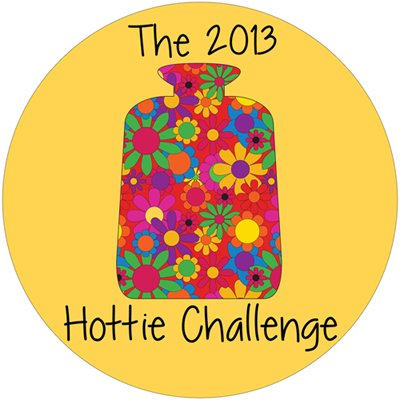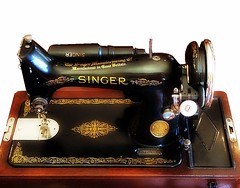
This week I began reading the most fascinating book. Have you read bestselling The brain that changes itself?
I'm about a third of the way through this non-fiction work, by research psychiatrist and psychoanalyst Norman Doidge. His very readable book argues that the adult brain is "plastic" or malleable. The stories are amazing. The idea that the brain has the ability to re-wire and change structure right into old age is truly inspiring.
I've already started to rethink some stuff.
For example: some while ago we purchased an exciting bit of computer periphery. The tablet pen looked so promising - I was awfully keen to try doing some digital illustration. But sadly I was thwarted by my hand-eye coordination. Even stick figures were appalling; some might say unrecognisable. I started to think things about old dogs and new tricks and eventually decided to stick with the humble pencil. I gave up.
This afternoon I noticed Mr HB had plugged in the tablet pen. Plastic brain, I told myself. I sat down and started scribbling random stuff over and over again. I drew little flowers and smiley faces and tried signing my name. Then I tried a little Spring drawing (above). Its not quite what was in my head ... but it was fun all the same.
I'll keep exercising my plastic brain.
The Brain That Changes Itself: Stories of Personal Triumph from the Frontiers of Brain Science
Norman Doidge
Viking 2007
ISBN 067003830X






Sounds like something that Ms L would love to read. She may already have.
ReplyDeleteLove the illustration. It's so pretty.
I LOVE your drawing Liesl! When I started reading, I thought it must be an illustration from the book - as well as being a beautiful Spring drawing, it does look a lot like a representation of those little connections being made between neurons in the brain.
ReplyDeleteInteresting indeed!
ReplyDeleteYour drawing is very cute :) And Gypsy is right! It does look a lot like neurons! xox
That's amazing - I clicked in for a closer look at the detail. It reminds me of a beautiful christmas tree.
ReplyDeleteI think my brain could do with some re-training. Does it work for forgetfullness?
What an inspiring thought for when I feel a bit older than I'd like to. I shall keep that hope alive! Maleable mind. I like it. And I loved your picture. well done for persevering! x
ReplyDeleteSound very interesting indeedy do....might have to have a look for it.
ReplyDeleteIt might not have been what was in your mind but it looks fantastic. Definitely keep going with your drawing! Lou.
ReplyDeleteThank you for the link to that book - I'm putting it near the top of my list.
ReplyDeleteI am constantly awed by the amazing things plants are able to do - it will be exciting to learn about what we lesser beings can do!
This book sounds right up my alley, I'm fascinated by this sort of thing. Must get it. And, wow to your illustration, it's absolutely lovely!
ReplyDeleteAmazing book, I bought it when my Dad had a stroke and its been amazing how his brain has repaired itself.
ReplyDeleteBut as for the drawing tablet, I can't seem to make my brain take to it, I must have another try!!!
Your illo is amazing Liesl.
ReplyDeleteBut I also love what you create with the humble pencil, I'm just a such for old style drawing. xo
Oh yes, 'tis my my mother with Alzheimers does tonnes of brain exercises, clinging to the memory of her husband of 55 years, children & 14 grandchildren. Love Posie
ReplyDeleteOh fantastic, thanks for the tip. I find modern neuroscience so fascinating, and have read some incredible stories about recovery from strokes. Will hunt that one down. And I love that drawing! Jeepers I wish I could draw. Such a great talent.
ReplyDeleteI bought that book for my father-in-law, he used to work with acquired brain injury patients. It does sound fascinating, and I keep meaning to borrow it from him.
ReplyDeleteLove your spring scene :-)
I love those sorts of books too. One of my favourite brain books is "The man who mistook his wife for a hat." by Oliver Sacks.
ReplyDeletePerhaps I should read that book because I too have been thwarted by our drawing tablet!
ReplyDeleteNice picture!
I have indeed read that book and now I know my brain can do anything - well almost. If I come across a problem I always first think, try to do it with your other hand!
ReplyDelete